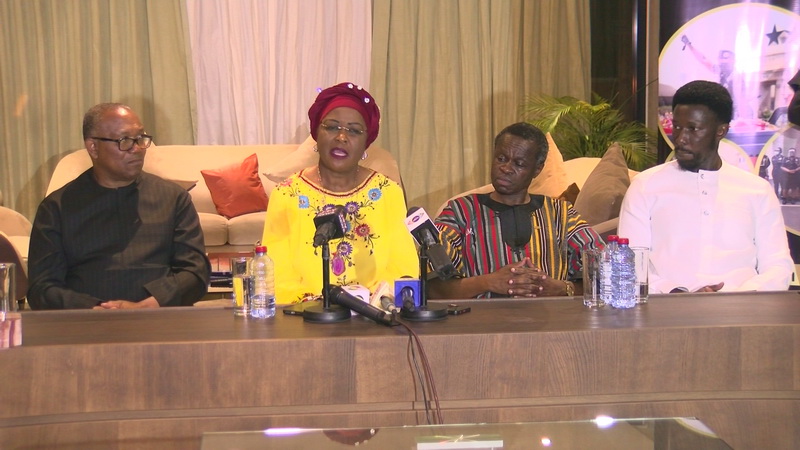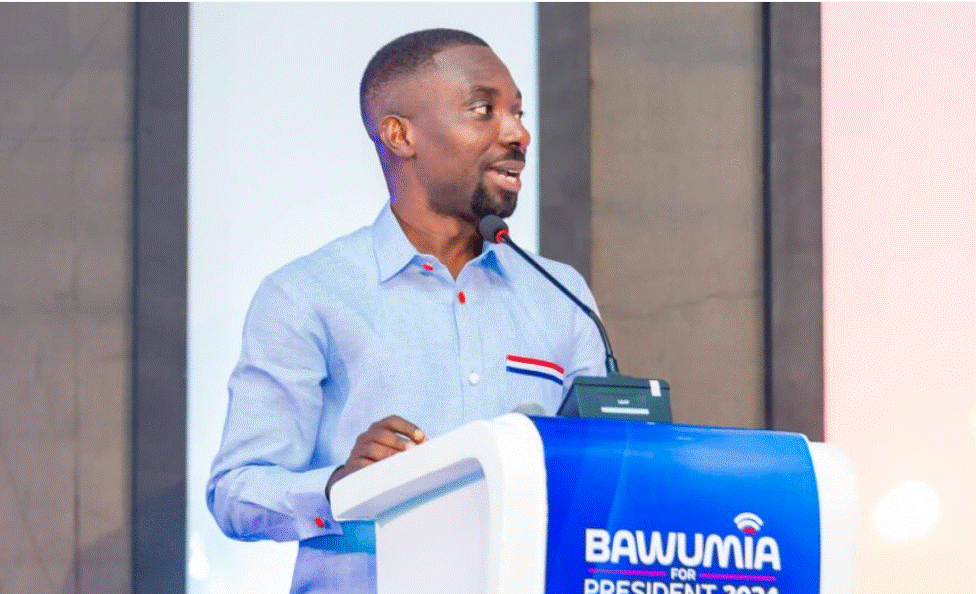
Ghana has made a good choice for Africa's integration efforts by ratifying the African Continental Free Trade Agreement (AfCFTA) and is firmly committed to supporting its successful implementation.
Mr Anthony Nyame-Baafi, Director, Multilateral Regional and Bilateral Trade, Ministry of Trade and Industry, who made this known in Accra on Wednesday, September 11, 2019, was emphatic that AfCFTA would enhance Government's current industrial transformation agenda and contribute to the diversification of the Ghanaian economy.
Furthermore, Mr Nyame-Bafi said AfCFTA would open new market access opportunities under the preferential terms for Ghanaian producers, particularly Small and Medium Scale Enterprises (SMEs).
He, however stressed the need for collaboration between all stakeholders? members states, Regional Economic Communities, Government, the Private Civil Society, Parliament, Development Partners and the general public? to harness the benefits of AfCFTA for tis successful implementation.
He was speaking at the third of the annual quarterly public lectures organized by the Institute of Chartered Accountants, Ghana (ICAG).
ICA (Ghana's) annual quarterly public lectures provide the platform for the Institute to present its views on or discuss national and key government policies.
Last week's event, which took place on the theme: The African Continental Free Trade Agreement (AfCFTA): A Choice for Africa?, therefore, aimed to create public awareness on the benefits of regional integration by promoting intra-African trade through the removal of trade barriers, generate discussions and to seek the views of experts on the suitability of the choice.
In a presentation Professor Godfred Alufar Bopkin of the University of Ghana Business School described AfCFTA as the most significant economic intervention since the setting up of the Organization of African Unity (OAU) in 1963.
Prof. Bopkin noted that Currently, there were very little financial and economic linkages within Africa and that only 17% of sub-Saharan Africa's exports were traded within its borders while Asia and Europe traded 60% and 70%, respectively, within their borders.
The AfCFTA, he said, therefore, probably offered the opportunity to break the cycle of exporting raw materials only to reimport them as value added.
He said the signal effect of AfCFTA was already in the statistics with Africa as the only region to witness increases in Foreign Direct Investment (FDI) in the past three years.
Prof. Bopkin said AfCFTA was already delivering results well before it entered into force. "In December 2018, we held the First Intra-African Trade Fair, in Cairo, Egypt, which attracted above target exhibitions and business transactions.
At the Cairo Fair, we had 1,086 exhibitors, 86 above target. We also had business deals over US$32 billion, well above the target of US$25 billion" (AU, 2019), he added
He said with the minimum wage rising in China and trade tensions escalating, Africa iwas in sight and becoming more attractive for FDI.
Prof Bopkin noted, however, that the benefits of AfCFTA would not be automatic and that it would require addressing physical connectivity challenges, the provision of hard and soft infrastructure underpinned by greater reforms to boost intra-regional trade and to address labour mobility issues and job clustering.
In an address at the opening of the lecture, Professor Kwame Adom-Frimpong, President, ICAG, pointed out that while there was evidence that AfCFTA promised to unlock Africa's economic potential, there were equally fears that the treaty focussed too much on cutting tariffs, without enough consideration of the varying production capabilities.
Prof. Adom-Frimpong said a section of the people were against the agreement, calling it a renewed and extremely dangerous and radioactive neo-liberal initiative, adding that while countries which were already connected to the global economy might benefit from the integration, others would have to wait for the benefits to trickle down.
He said the object of the lecture was, therefore to examine AfCFTA on whether or not the envisaged benefits of AfCFTA in terms of business and industrialization were real, despite their operational challenges.
He agreed that integration was a good idea but questioned the preparedness of Africa and Ghana for the agreement.
The African Continental Free Trade Agreement (AfCFTA) is a trade agreement which is in force between 27 African Union member states. It was signed in Kigali, Rwanda, on March 21, 2018 and as at July 2019, 54 states have signed the agreement, while ratification by 22 countries is required for the AfCFTA to enter into force and the African Continental Free Trade Area to become effective.
Kenya and Ghana were the first countries to deposit the ratification instruments on May 10, 2018, after ratification by their Parliaments, while Ghana has been nominated to host the Secretariat of AfCFTA that will implement the agreement.
The Africa Continental Free Trade Agreement (AfCFTA), which is anchored on AU's Agenda 2063, The Africa We Want, aims to create a single continental market for goods and services, with the free movement of business persons and investments that will pave the way for accelerating the establishment of a Customs Union.
In 2012, the African Union aimed at boosting Intra-African Trade (BIAT) and fast-tracking the African Continental Free Trade Area (AfCFTA) and in 2015, the AfCFTA negotiations were launched at Summit in SA.
The AfCFTA Agreement was opened for signature on March 21, 2018 at the Extra-Ordinary Summit of the Assembly of African Union Heads of State and Government in Kigali, Rwanda.
54 out of 55 countries in Africa have so far signed the AfCFTA, while 27 countries have ratified the Agreement.
The agreement, which establishes the largest free trade area in the world since the creation of the World Trade Organization in 1995, is expected to function as an umbrella to which protocols and annexes will be added.
Read Full Story




















Facebook
Twitter
Pinterest
Instagram
Google+
YouTube
LinkedIn
RSS